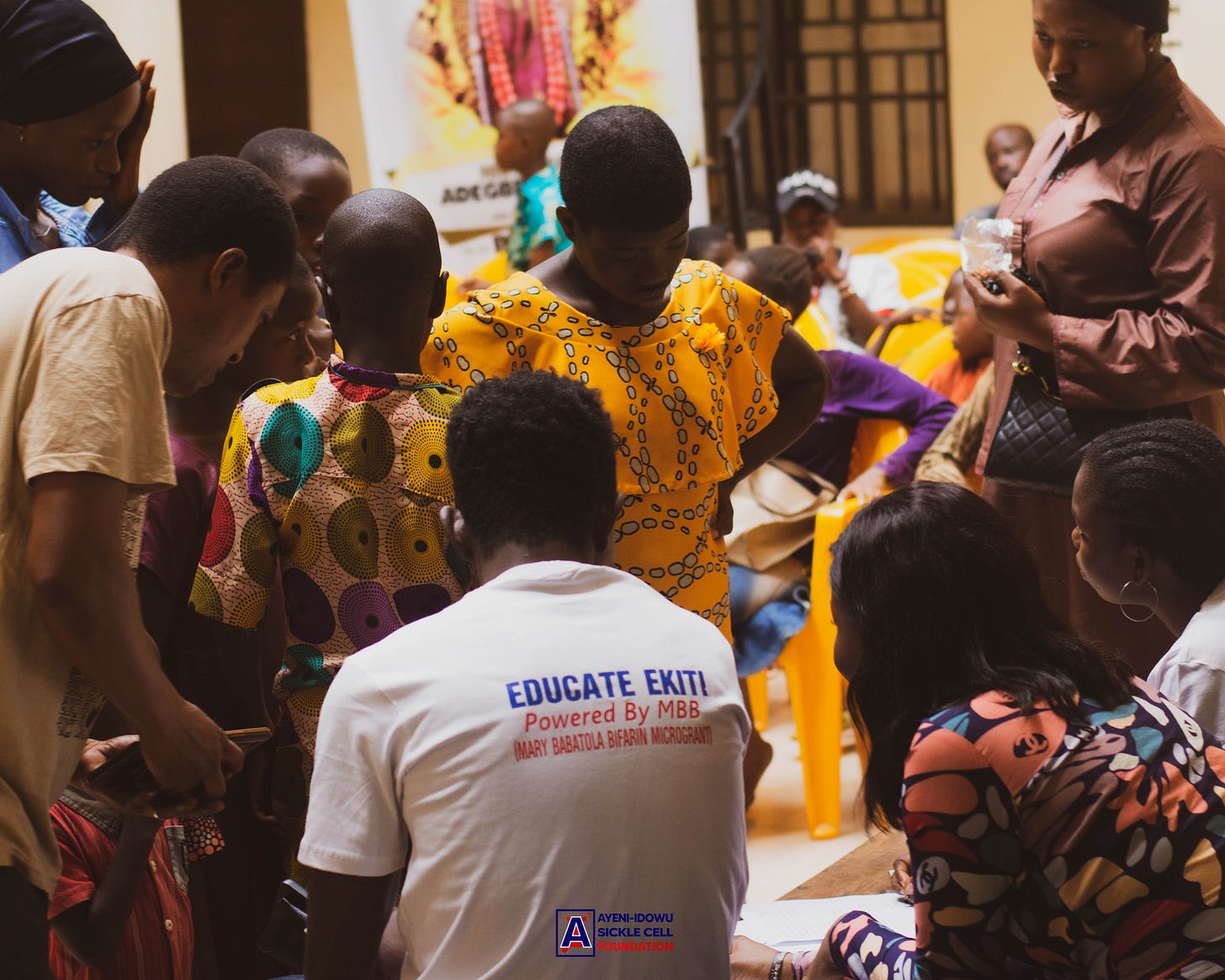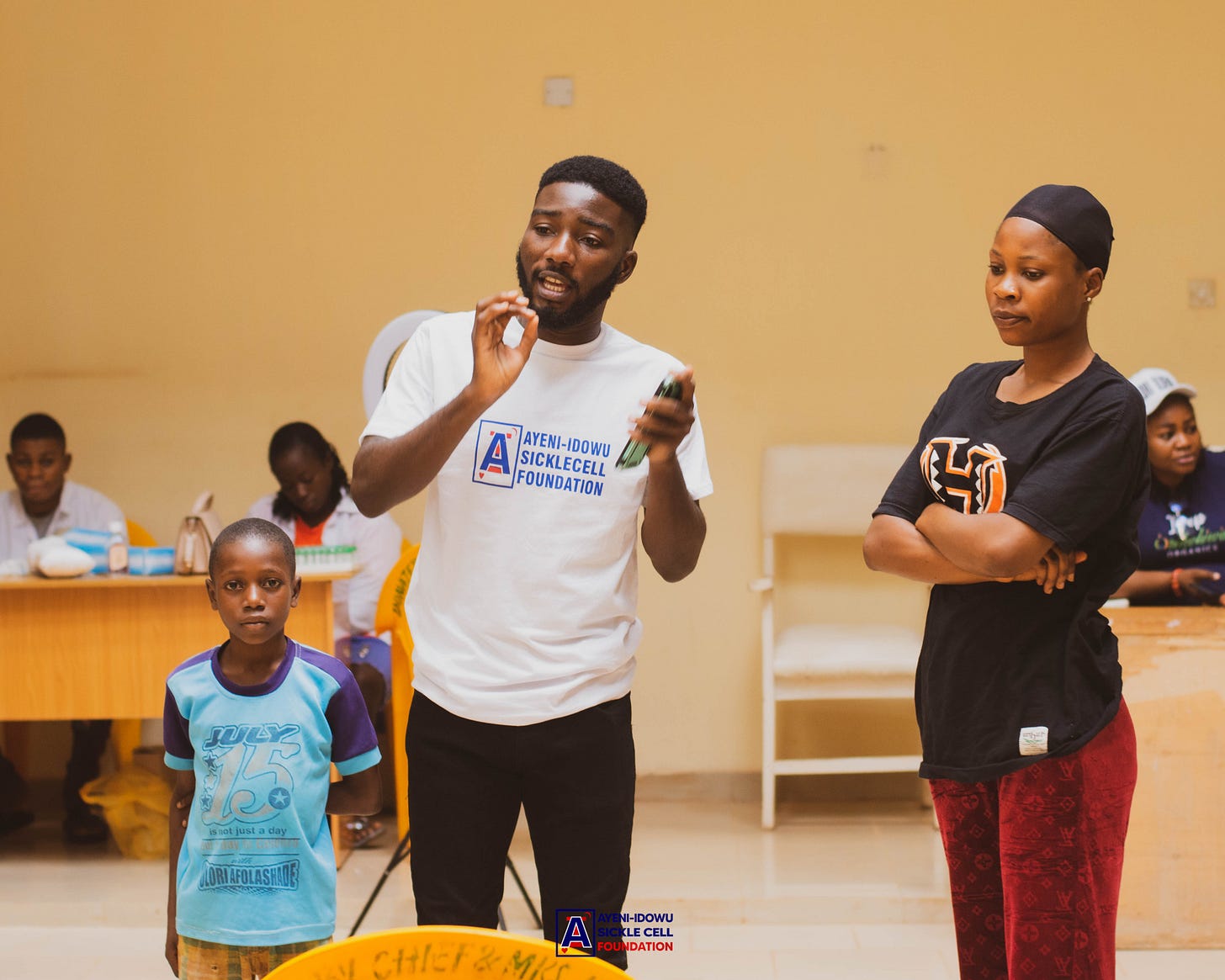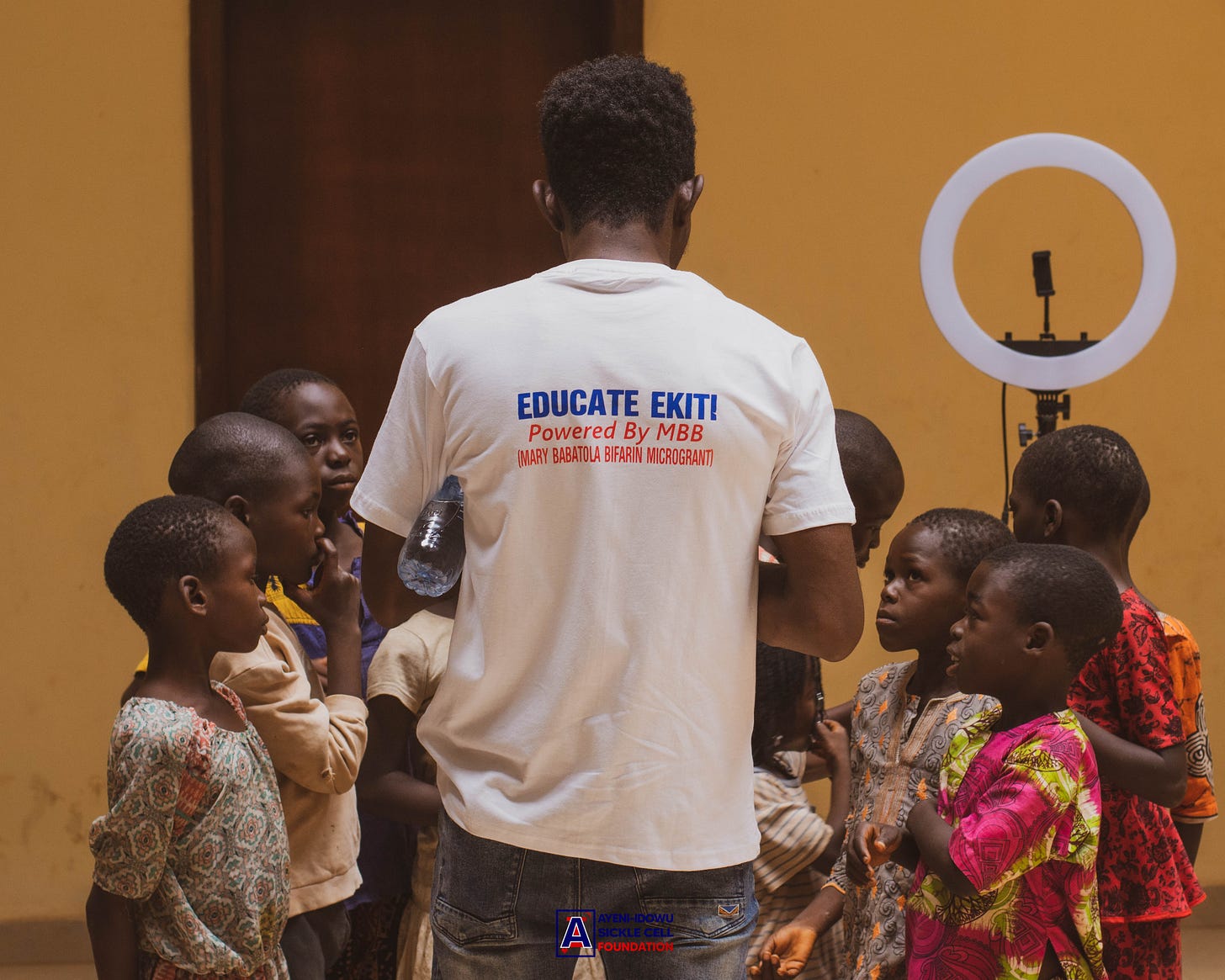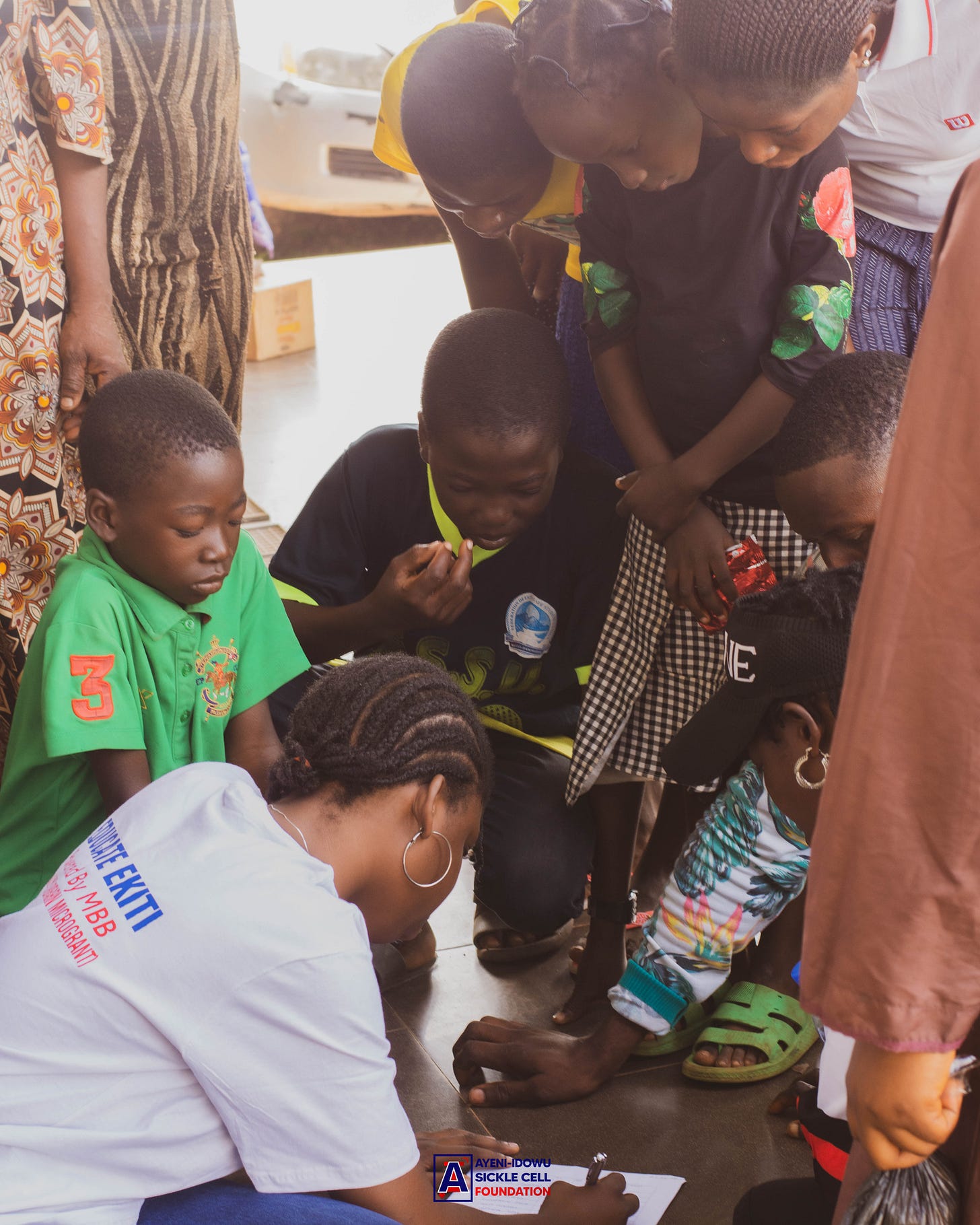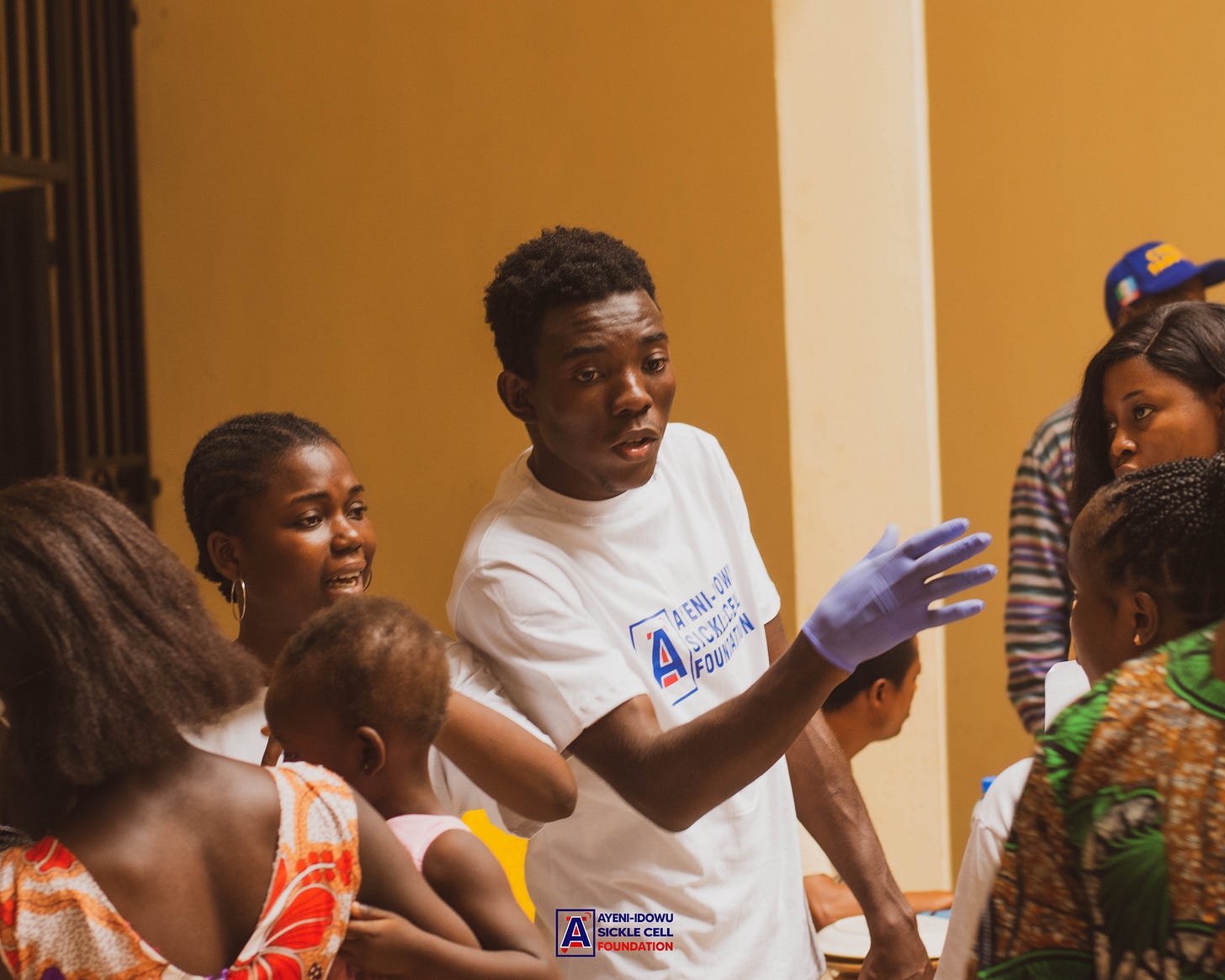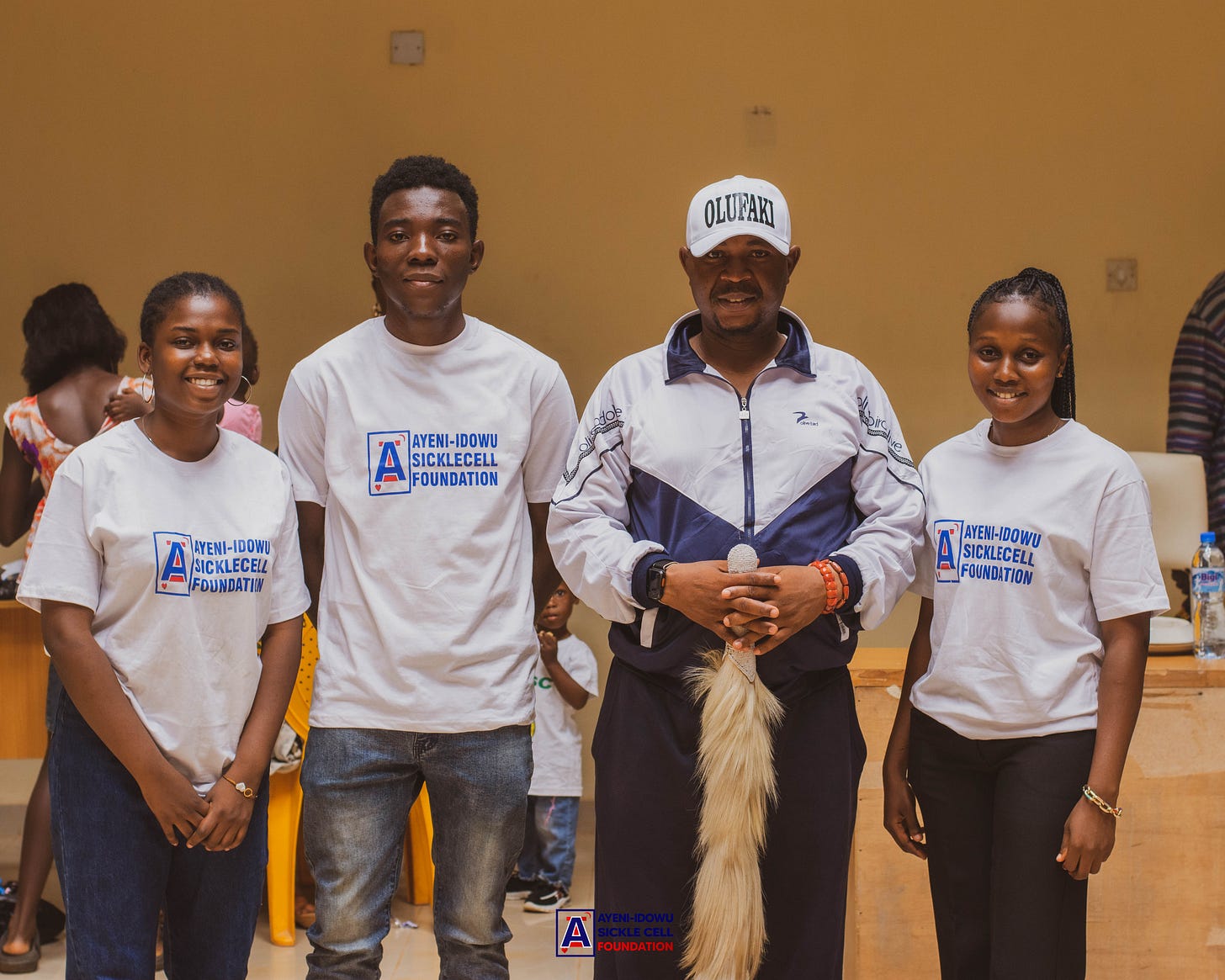GENO 100
Sickle Cell Health Education & Genotype Testing in Underserved Nigerian Community
This essay is written by Olatunbosun Mobolaji a co-winner with Ayeni Idowu in the Mary Babatola Bifarin Grant Cohort 2 for their project on sickle cell in an underserved community in Southern Nigeria (Ifaki Ekiti). I would like to extend my thanks to the donors and the judges that assisted for the second cohort of the MBB grant.
On the 3rd of June 2023, an event unfolded in the serene town of Ifaki Ekiti, located in the heart of Ekiti State, Nigeria. This event was dedicated to promoting genotype compatibility awareness, and it left an indelible mark on all those who attended. The event kicked off with a captivating training session led by Olatunbosun Mobolaji.
Mobolaji passionately conveyed the significance of understanding genotype compatibility in relationships and the potential consequences of neglecting this crucial aspect. Participants, spanning from children to young adults, eagerly absorbed the valuable insights and practical knowledge shared by Mobolaji, empowering them to make informed decisions about their future partners.
One of the event's highlights was the opportunity for 90 attendees to undergo genotype testing. This essential procedure allowed individuals to discover their genotypes and gain a deeper understanding of the potential risks associated with their future relationships. By participating in this exercise, attendees became more aware of the importance of making informed decisions regarding their partners, ultimately fostering healthier relationships and reducing the risk of genetic disorders within their families.
The success of the event would not have been possible without the invaluable support of the The Mary Babatola Bifarin (MBB) Grant program. Their contribution played a pivotal role in making the event a reality, providing genotype testing kits, educational materials, and a conducive learning environment. Attendees expressed their heartfelt gratitude towards the MBB Grant, recognizing their commitment to improving the overall health and well-being of the community.
The Ifaki Ekiti community warmly embraced the event, displaying genuine enthusiasm for raising awareness about genotype compatibility. The locals' open arms and active participation reflected the strong sense of unity within the community and their collective desire to foster healthier relationships among its members. This unwavering support from the community further emphasized the importance of addressing genotype compatibility as a shared responsibility.



